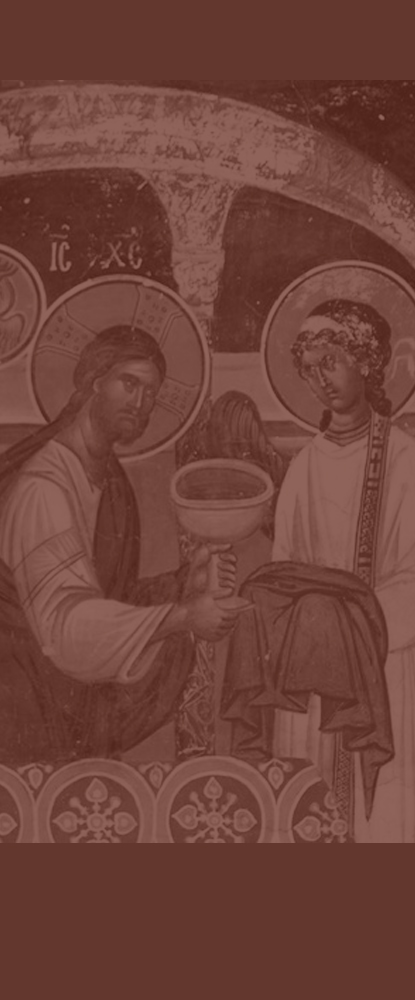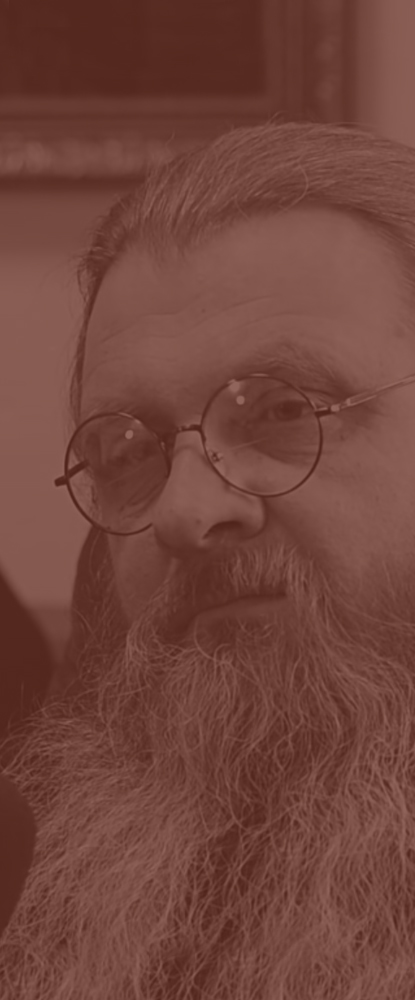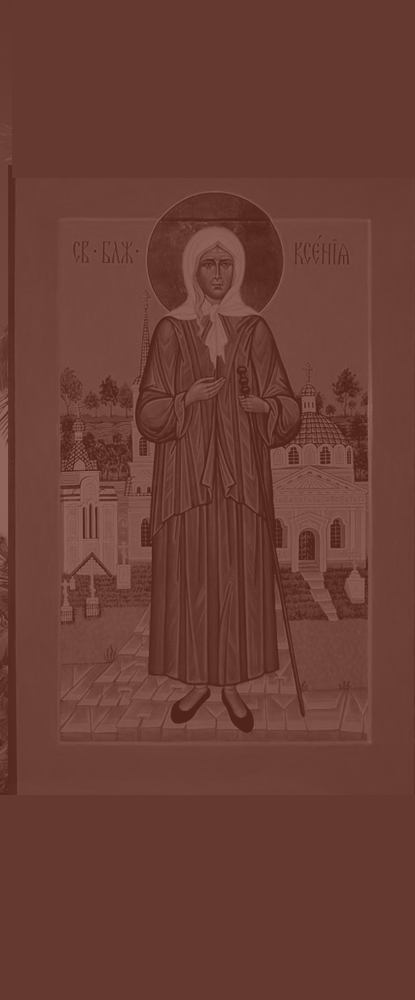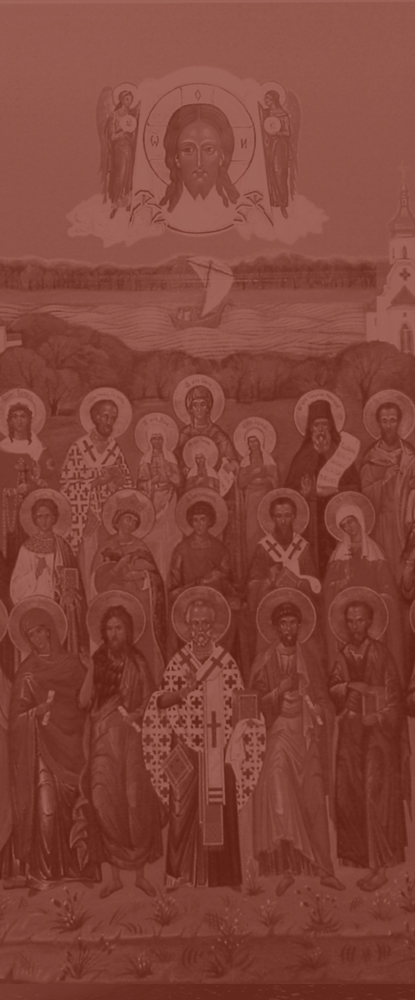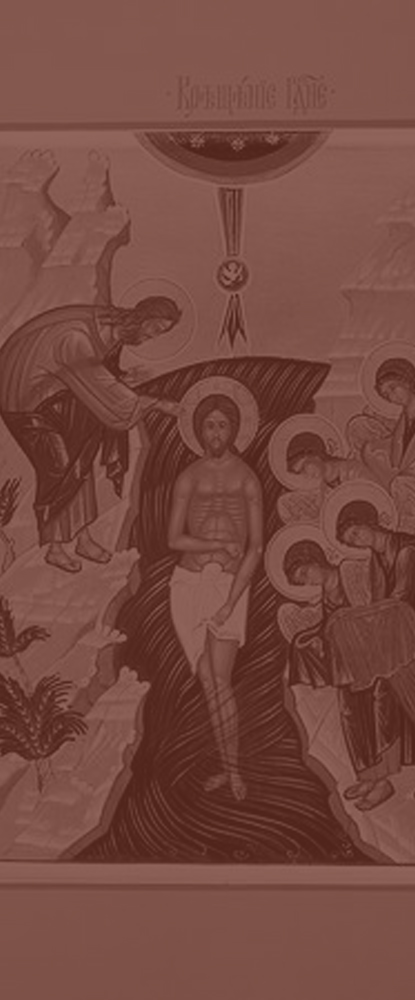HOLINESS FROM GRACE
Archpriest Sergiy Baranov
Church of All Saints at Kulishki, Moscow
11.02.2024
In the name of the Father, and of the Son, and of the Holy Spirit!
I am very glad today to have a chance to serve at your church dedicated to All Saints. In addition, today we commemorate such an amazing saint as Ignatius the God-bearer!
The very epithet to his name inspires me to say a few words about the nature of this unique phenomenon, holiness. I would like to speak a little about what this outstanding phenomenon of holiness is. If we do not understand the essence of this phenomenon correctly, we will commit a great and horrible spiritual mistake. The mistake that was committed by our forbearers, Adam and Eve, in heaven.
When the serpent tempted them and invited them to taste the forbidden fruit, Adam said with childish naivety, “It is forbidden to us to eat from this fruit, as we will surely die!” To which satan answered them like a human, “You will not die but you will be like gods!”1 After all, this was probably the biggest temptation. To become a god without God. The Lord says, “Do not do this, I am asking you.” He addresses them like children, very gently and kindly, “I am asking you.” He said the following words, “I am asking, do not eat.” However, Adam and Eve could not cope with this temptation. They wanted to become saints or gods without God. A while later, the builders of the Tower of Babel made the same mistake. They also had a negative result, a failure.
Their inner compulsion to move upwards, there, in the heavens, induced their activity. They made that tower, made bricks, put them one on top of another and tried to move there, upwards, but again, the result was negative; it was a failure. Everything was ruined, including all their efforts and asceticism.
We should understand the main sense of holiness. Holiness is a feature of God. It is not a feature of a human. A human can touch holiness only through union with God. In the Holy Fathers’ theology, it is called deification. A human is not holy by himself but he becomes holy through touching God’s holiness.
During the Holy Liturgy, we have just heard the following words, “Holy Things are for the holy.” These words concern every one of us. What is the meaning of them? It does not mean that we are all saints and we came to get our Holy Things. Our participation in holiness is made through the Mystery of Baptism, when we enter the Church, or the Body of Christ. We come inside the Body of Christ, into the realm of holiness, but we are not holy by ourselves, we only entered the realm of the Body of Christ that is holy. We are allowed to approach the Holy Things, participate in the Mysteries of the Church and thus we can hear “Holy Things are for the holy.”
Today, now, in a minute, you will receive the Eucharist, you will directly receive the Body and Blood of Christ into yourselves. Christ will be inside of you. To an extent, it will be possible to say about you that you are holy. However, this will not be your holiness, but the holiness that will dwell in you after the Communion. This is a unique phenomenon. “No one is holy but One, that is, God,”2 the Lord says in the Gospel. Every person can be holy by relation and involvement into Divinity.
Holiness is the nature of Divinity, it does not belong to us. At the same time, you might wonder, “So, no effort is needed on our part? Just go and take Communion, touch the Mysteries of the Church, be a Church member and you are already holy? And it is said about you at the Liturgy ‘Holy Things are for the holy.’”
Do you know what it is like when the holiness of God enters every one of us through the mysterious Body of the Church by His mercy? I would compare this with a sad phenomenon, when the light of God, His holiness and purity descend into a filthy and dark prison. Untidy, ill-smelling and nasty, and He descends there by His mercy. He does not defile Himself but the prison remains nasty. If one takes a precious pearl and throws it into dirt, then he will hold a piece of dirt in his hand but the pearl inside of it will not change, it will remain the way it used to be.
Therefore, to this holiness that makes us holy by the mercy of God, through the Mystery of Baptism, thanks to which we can approach the Mysteries, including the Mystery of the Eucharist, we should add our personal effort and sincerity. This is like the renovation of an old dark and greasy icon, in which we might even not see the image, but it still remains an icon. The dirt on the icon remains dirt. Thus, our asceticism, our spiritual life resembles the renovation of an old icon, which needs to take off the soot, darkness, and dirt, layer by layer, in order to set free the holiness that lies underneath, so it could shine.
Holiness is a unique phenomenon, if a person understands its essence. Ignatius the God-bearer… It is so good that today is his day. There is the tradition… Look, the very epithet “God-bearer” tells us where his holiness was, he was bearing God inside of himself and emanated light, which did not belong to him but to the Divinity because God dwelled in his heart. This is why he was a God-bearer.
No matter how much effort we apply, what kind of feats, perseverance and stability we perform, no one of us can become holy through our own effort, diligence, techniques or some exercises. God makes humans holy, when we, having humbled ourselves, realize our narrowness… Look, how the prayer “O Heavenly King” goes, “Come and dwell in us, and cleanse us of all impurity.” These words are very exact. It is not I who cleanse myself by the feat of prayer, fast, asceticism and vigilance but You cleanse me. Whilst all of my feats are just an indication of my sincerity and eagerness, so You come and dwell in me and cleanse me of all impurity.
You will now come up to receive the Eucharist like holy ones, partially. This holiness is not a dignity or honor. This holiness is a big responsibility. Our holiness consists only in the fact that the Lord accepted us into His Body or the Church of Christ, that we became the particles of this Body. Being related to this Body, the holy ones approach the Holy Things. However, this is a great responsibility! We should not let the Body and Blood of Christ go into a dirty, ill-smelling and filthy prison. He, by His humility, will descend and will dwell there but we should feel that His holiness is offended and do something with ourselves. We should renovate our own image a little.
Glory to our God, always, now and ever, and unto the ages of ages!
1 Gen. 3:5
2 Mk. 10:18
